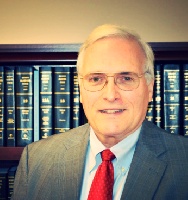Tuscaloosa County, AL Wills & Probate Lawyers
Includes: Estate Administration, Living Wills, Wills
Herbert E. "Chip" Browder
✓ VERIFIEDEstate Planning, Wills & Probate, Trusts, Elder Law, Tax
The Browder & Welborn Law Office is a family-oriented law firm that focuses on protecting our clients' families, their family businesses and their ass... (more)
E. Calhoun Wilson
Bankruptcy, Wills & Probate, Social Security -- Disability, Estate Planning
Status: In Good Standing
Laura K Gregory
Real Estate, Wills & Probate, Trusts, Estate
Status: In Good Standing Licensed: 36 Years
John P. McClusky
Real Estate, Wills & Probate, Divorce & Family Law, Criminal
Status: In Good Standing Licensed: 48 Years


